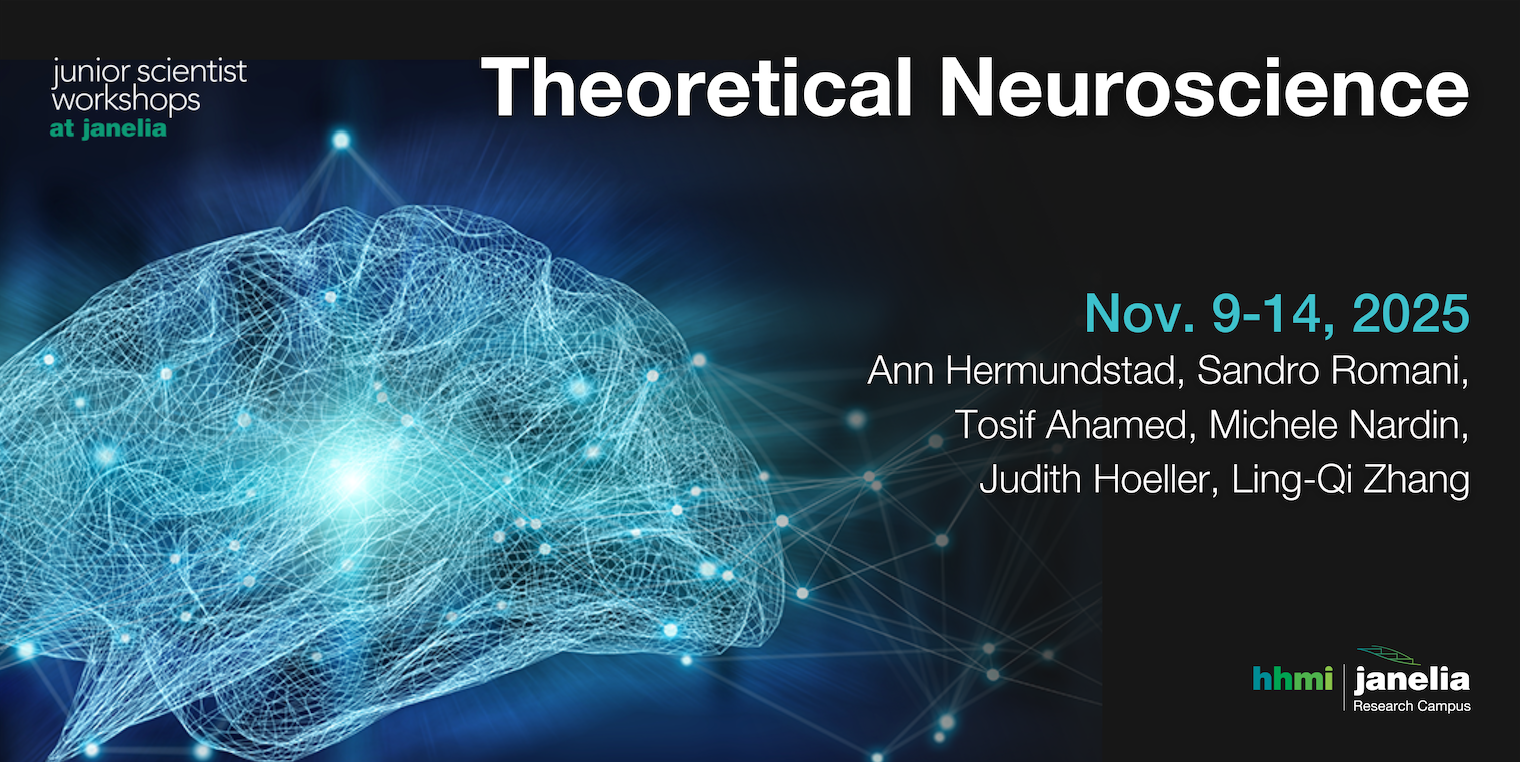Junior Scientist Workshops at Janelia are designed specifically for graduate students, postdocs, and those in similar positions. These intense, interactive meetings allow attendees to present their work, receive and provide critical feedback, engage in lively discussions and network with peers without the pressure of having more senior scientists in attendance.
We talked to organizers of the 2023 Junior Scientist Workshop on Theoretical Neuroscience to get an insider perspective on what makes these workshops special.
HHMI Janelia: How are Junior Scientist Workshops different from a typical Janelia conference?
Ann Hermundstad, group leader in Janelia’s Computation & Theory research area: In typical conferences, we focus on distilling the essence of our work and presenting it to a broad, interdisciplinary audience. We rarely get the opportunity to dig into conceptual and methodological details of our work, the choices we make along the way as a project develops, and the pitfalls of using different approaches. This workshop gives us all a chance to understand, discuss, and learn from these details, and to go through our work in depth at the whiteboard. The workshop is also smaller and lasts longer than a typical conference. By the end, we've all had a chance to talk in depth with one another, and we tend to form a pretty tight-knit group.
HHMI Janelia: How does this workshop benefit the attendees?
Sandro Romani, group leader in Computation & Theory: The main aim of the workshop is benefiting the early-career scientist community first. We specifically designed this workshop as a “for the students, by the students” forum for exchanging ideas, theories, and mathematical and computational tools for neuroscience.
HHMI Janelia: How do the workshops affect the scientific community at large?
Ann Hermundstad: It helps us build deeper connections between different areas of theoretical neuroscience and helps us better understand the advantages and limitations of different approaches that we use in our work. This also helps us build community beyond the workshop, and we stay in touch with workshop participants at other meetings and conferences down the road.
HHMI Janelia: What is your favorite aspect of Junior Scientist Workshops?
James Fitzgerald, visiting scientist from Northwestern University and former Janelia group leader: You really get to know everybody well and you can form some nice bonds with them. It's kind of a community building experience, which I think is another big part of the goal: to help build a community of people who are interested in these types of things. I really like the science “speed dating” sessions. It lets you get to know people at a superficial level very quickly, but then you build those interactions over the course of the week. We also do a hike at Great Falls and that’s nice because it gives you a chance to introduce yourself to anyone you haven’t met yet and get refreshed for the last few days of the workshop.
HHMI Janelia: What would you say to somebody that is applying for a Junior Scientist Workshop?
James Fitzgerald: I think it’s a great opportunity. I would emphasize the rare opportunity to really dive deeply into the more technical aspects of your work and share that with other people. It's great practice too in terms of how to organize and deliver chalk talks. It’s also nice to learn, in depth, many active areas of theoretical neuroscience so you can really get a sense of what is receiving a lot of attention and enthusiasm right now in the community.
Applications are currently open for the 2024 Junior Scientist Workshop on Theoretical Neuroscience.
Apply Now
Applications are currently open for our 2025 Junior Scientist Workshop on Theoretical Neuroscience.

